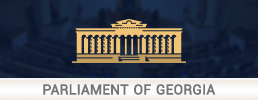The Meeting of the Government of Georgia was held on 9 January 2008. The agenda of the Meeting consisted of 20 items.
At the commencement of the Meeting, Prime Minister of Georgia Vladimer Gurgenidze stated that the Government of Georgia had to work in a very interesting, transitional period, which did not imply slacking off in work, adding that changes in the Government structure were expected, in respect of which consultations were being held.
After that, he said: within the next two weeks, we must complete work on a short-term program that must reflect all the promises or initiatives that we have spoken about for the last two months. It entails a huge volume of work, as the program includes a wide range of different initiatives, but these initiatives are not hard to fulfill, as all the promises or initiatives have been fully covered by the 2008 State Budget. At this meeting, we'll consider a package of crucial legislative changes concerning two key issues. One is about the final execution of Poti Free Industrial Zone, talking into account all the tax or customs issues, and the other is about the establishment of Georgian International Financial Center and its competitiveness. If the Parliament of Georgia approves the package of these changes, we'll create an unprecedented financial regime that has no analogue in the CIS or East European countries. The initiative is related to a number of changes. In particular, we'll have to legitimize the budget proficit that is closely related to the issue of establishment of Future Generations and Strategic Development Fund. The budget proficit will be accumulated there and put towards the benefit of the nation, primarily towards rehabilitation and reintegration efforts that will follow the territorial unification of our country.
Besides, material changes will have to be made in terms of National Bank regulation. A priority objective of National Bank to maintain price stability is being clearly shaped and its accountability before the Parliament over the accomplishment of this objective is increasing dramatically. For the first time across the post-Soviet or post-Communist countries the law will spell out that it is impermissible to plan a two-digit inflation rate in a country. And if the actual inflation rate during any four quarters exceeds 10%, plus a certain range, the time comes for the Parliament to act swiftly and the accountability of National Bank in this respect increases dramatically.
The financial monitoring agency will be finally formalized and established to continue its independent highly effective work. It will provide supervision over the entire financial sector of Georgia. Money-laundering efforts will be stepped up in terms of introducing the criteria for eligibility of major shareholders in banks, etc, as this is one of the main issues in establishing a financial center in Georgia.
For investors, businessmen and all business entities in general it is quite interesting to know that this package is intended to considerably alleviate the tax burden in our country. It is proposed that from January 1, 2009 we abolish the tax on the interest income earned from deposits held in banks or from publicly traded bonds; that from January 1, 2009 we zero dividend tax as well as tax on the income from publicly traded or issued securities; that for the next five years we cut the income tax rate of 25% down to 15% that is so important for the general public and employees. The Government will be assigned to prepare, within the next two months, a schedule of the pace, at which implement the reduction within the next five years. In the wake of this reduction, any tax on any dividend and on any interest income will be zeroed completely. There are a number of proposals and initiatives.
As a result of the above, Georgia will have an imprudently light tax burden and fiscal regulation that will provide a powerful stimulus to establish our international financial center. The center and Poti Industrial Zone are the two core components of our long-term strategy to lead us to the ultimate point where "Georgia is without poverty".
One more thing. Jointly with the Ministry of Agrarian Affairs of Georgia, we must work hard to analyze the statements that Mr. Genady Onishchenko, the Chief of the Federal Sanitary Supervision Agency of Russia, has made for the last two days. We must adequately respond to them to determine in what form, mode or format to continue a dialogue with and, depending on the results of the dialogue, determine how real it is for the Georgian products to get back to the Russian market and how soon this can happen, of course, under the terms and conditions acceptable for us.
Organizational Department of the Chancellery of the Government of Georgia










